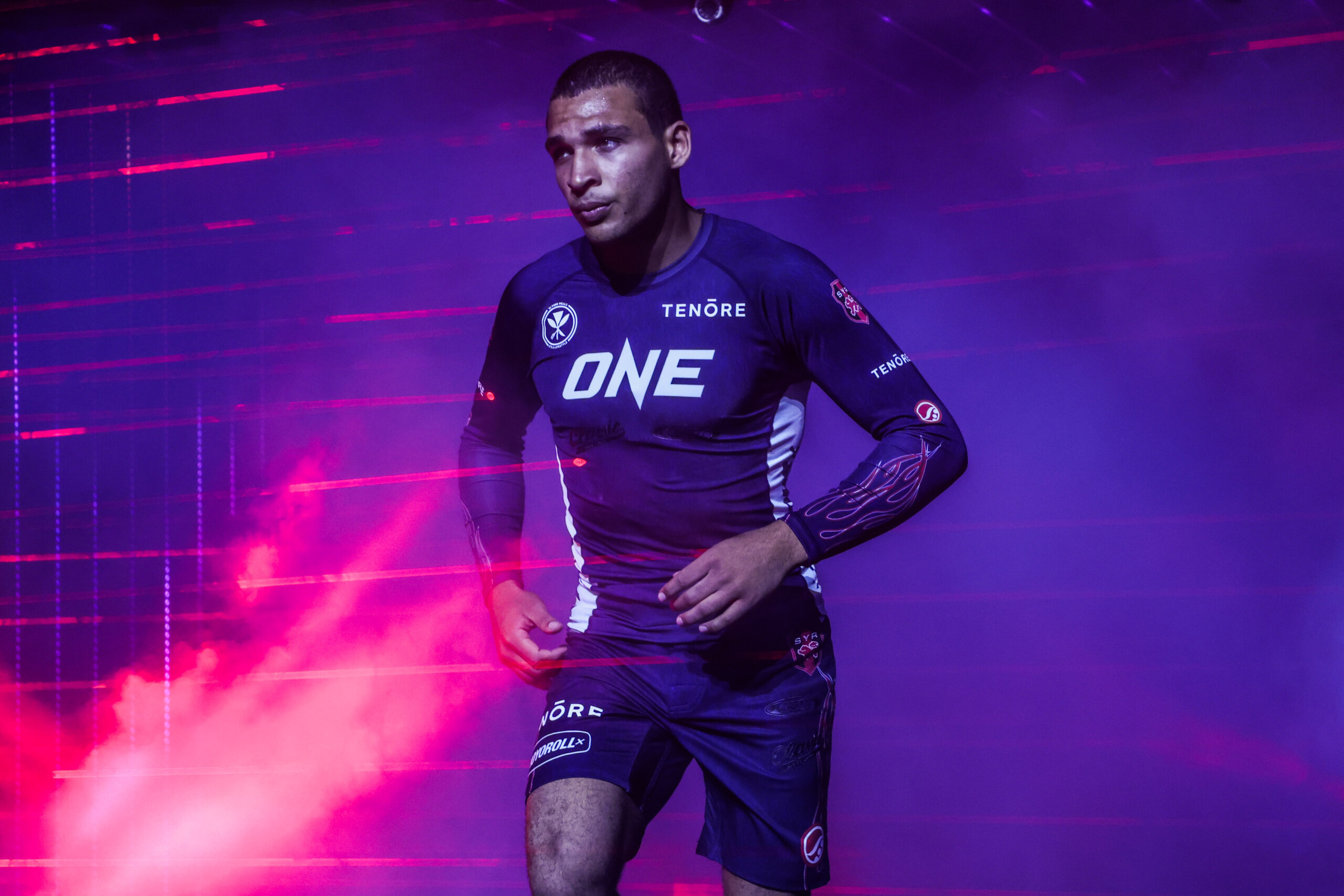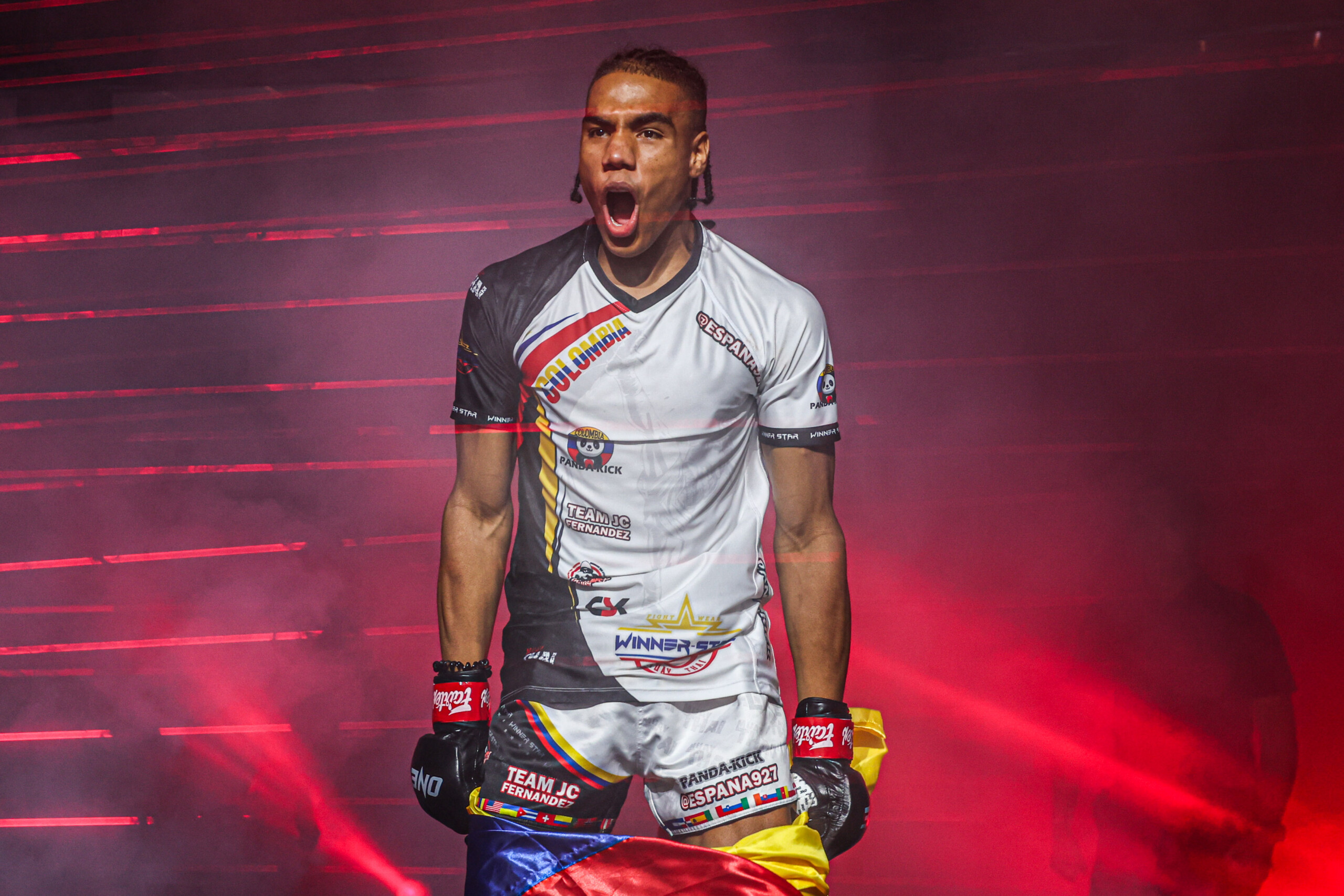‘This Martial Art Changed My Life’ – How BJJ Megastar Diogo ‘Baby Shark’ Reis Found His Purpose

One of the planet’s top pound-for-pound submission grapplers will soon make his debut in the world’s largest martial arts organization.
Diogo “Baby Shark” Reis has already conquered the most prestigious events outside of ONE Championship, and he will next square off with Japan’s Shoya Ishiguro at ONE Fight Night 29 on Prime Video in U.S. primetime on Friday, March 7.
Before the ultra-talented Brazilian steps into the ring at Lumpinee Stadium in Bangkok, Thailand, he spoke to onefc.com about his inspiring life story and his impressive journey to ONE Championship.
‘We Raised Ourselves’
Reis comes from a hard-working, blue-collar family in northern Brazil.
While his parents had precious little time between long hours of labor to spend with their children, Reis and his siblings were well-behaved and generally stayed on the straight and narrow.
He recalled:
“I grew up in Manaus, where I lived with my entire lower-middle-class family. My mother and father worked a lot. They couldn’t raise us, so we raised ourselves.
“My older brother, Adriano, took care of us. We never let ourselves be influenced by bad people. We never smoked, drank, or did anything wrong.”
Reis struggled academically, but he was athletically gifted and highly competitive from an early age.
Prior to finding martial arts, he dreamed of becoming a soccer superstar like countless other young Brazilians:
“My childhood dream was to be a soccer player. I still enjoy playing soccer today. At the time, I even went to soccer school with my older brother. Wherever he went, I tried to follow him too.”
Changing His Attitude Through BJJ
Reis didn’t only follow his brother to soccer practice. At the age of 10, he discovered Brazilian Jiu-Jitsu via his older brother, who had just begun trying out the ground-fighting art.
Looking back, “Baby Shark” said that his initial lessons in BJJ were more about character and discipline than fighting techniques:
“The first thing I learned was respect. I had to arrive on time, and I had to respect the higher-ranking person. So that was one of the first lessons I learned when I arrived on the mat.
“I was a lazy, rebellious, cheeky child, and when I arrived at the gym, they fixed me up. That changed me. I was a cheeky child who had no manners, and I started to form my character, developing discipline and being polite.”
Reis showed immediate promise in BJJ.
After just three years of training, he won gold in the teenage division at the Brazilian Nationals. He claimed that same title the following year and then in 2017, he began to make his mark on the North American BJJ scene, immediately establishing himself as one of the sport’s most exciting rising stars.
Despite that success, it wasn’t until he spent some time living in the United States – training alongside some of the sport’s most legendary competitors – that he understood BJJ could be a viable career:
“When I reached the junior level and had the experience of living in the United States, seeing athletes like [nine-time BJJ World Champion] Rubens ‘Cobrinha’ Charles up close, I realized that I could make a living from this. That was when I started to take it more seriously and was sure this was what I wanted.”
Overcoming ‘One Struggle After Another’
Since throwing himself full force into BJJ and submission grappling, Reis has now firmly solidified himself among the best of the best.
He received his black belt in late 2020 and has won gold at the IBJJ Pan-American and European Championships, as well as twice winning the prestigious ADCC World Championships.
However, “Baby Shark’s” climb through the ranks was anything but easy. He recalled struggling mightily throughout his teenage years, barely scraping by with whatever money he could earn to travel the world in pursuit of his dreams:
“I had financial difficulties because I lived in Manaus, and the main competitions were in Sao Paulo. Airfare was expensive, competition registrations were expensive, and to fight in the United States, there was the issue of getting a visa, so it was always a rush.
“I sold a lot of raffle tickets and asked friends for help. It was one struggle after another, but I never lacked anything. I always went after it because I was never ashamed to ask.”
Reis certainly isn’t alone in facing financial difficulties – or any kind of difficulties – during his climb to the world-class level.
He said the key to enduring challenging times is to keep working, stay focused, and trust in the process:
“My advice is to believe. Everything is a phase. I like to think that every bad phase is like going through a desert, so we have to believe that things will work out.
“We have to go after it and not wait. We have to have faith that things will happen. You have to do your part to train and eat properly. If you wait for the rain to fall, it won’t happen. You have to go for it.”
Inspiring The Next Generation
Still just 22 years old, Reis has already accomplished what many BJJ athletes could only dream of.
He’s determined to add more gold to his trophy case – including a coveted ONE World Title – but he’s ultimately fighting for much more than fame, acclaim, and accolades.
For “Baby Shark,” it’s all about cementing his legacy and inspiring the next generation of grapplers:
“I want to help expand my sport and help other people practice this wonderful martial art. I want to be an example for the new generation. Winning medals and titles, that goes away, but the example remains, the legacy remains.
“I want people to be able to achieve their dreams through jiu-jitsu. So, it goes beyond medals and titles. I want to be an example for the kids. This martial art changed my life and that of my family.”

















